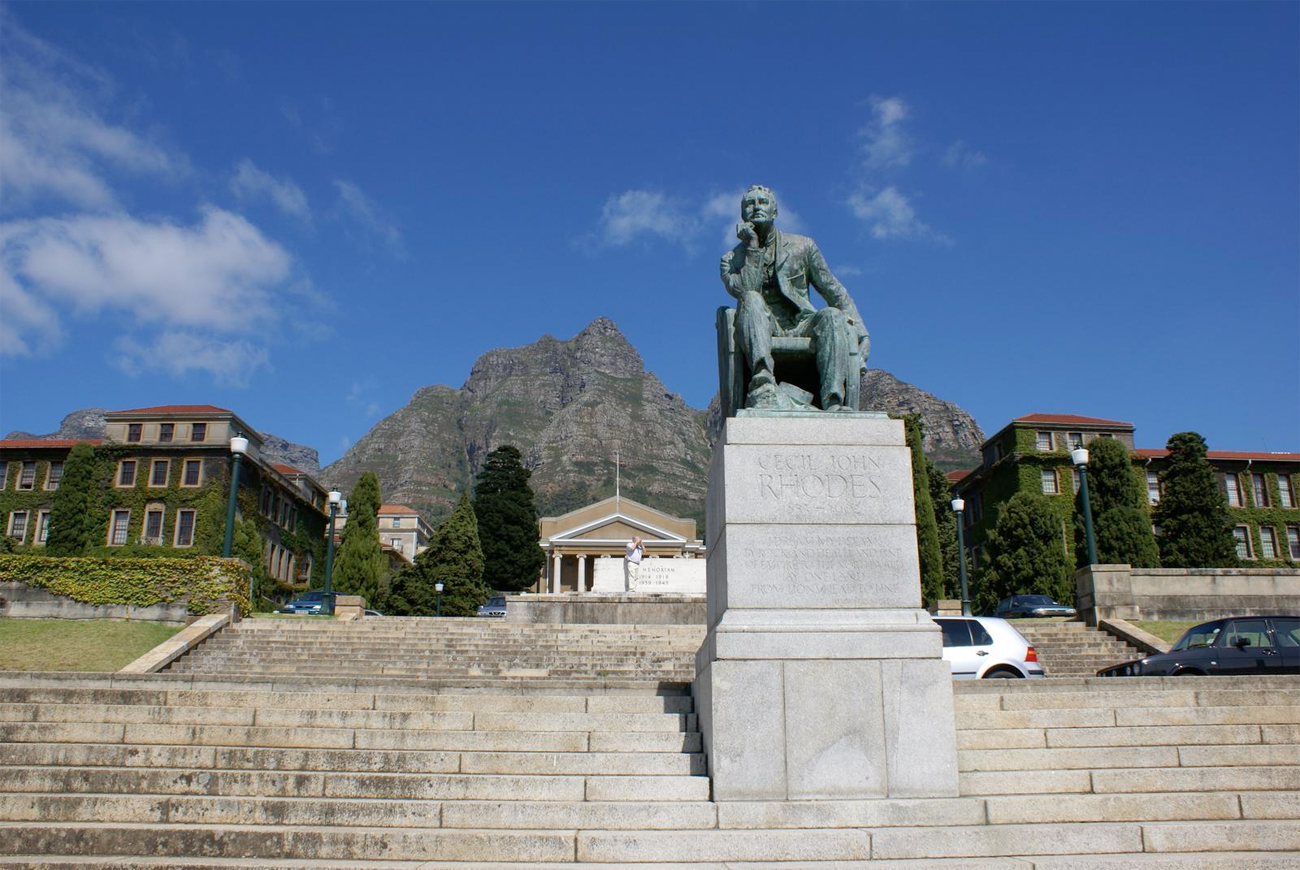The UCT Palestine Solidarity Forum (PSF) has given its backing for the removal of the controversial Cecil John Rhodes statue, describing it as a symbol of white colonialism and institutionalized racism that persists at the university. This comes after a group of students took to the monument on Monday, dousing it in human excrement in a radical form of protest.
Concerns remain amongst students of color that despite being 20 years into democracy, UCT remains littered with apartheid and colonial-era monuments, deemed a symbol of white supremacy. The PSF were amongst those involved in a mass student meeting on Jammie Plaza on Thursday, where the nature of the protest as well as the issue of the statue was addressed.
In explaining the PSF’s support for the protest action, executive member Josh Budlender referenced the group’s ongoing support for the Palestinian cause, noting that this was done from an anti-colonial perspective, with Israel being viewed as a ‘colonial Zionist state’
“Having the Cecil John Rhodes statue at UCT clearly affects a lot of students at UCT, and it is a colonial legacy. It entrenches the exclusion that students have and feel at UCT,” he explained.
The ‘poo-protest’, led by student Chumani Maxwele, has in equal parts received praise and condemnation. Although many have slated the protest as being too extreme and lacking any dignity, Budlender stressed that people were in no space to be criticizing the action, especially since it was non-violent in nature.
“All these other more polite forms of protest have not gotten black students who have these grievances anywhere. This has been an issue for a long time at the university, and people have been unhappy with the Rhodes statue for a very long time, but nobody has taken notice,” he said, indicating that the protest was having the desired impact.
Furthermore, he described any critique of the protest as an attempt to derail the conversation about the monument itself.
“It is not really a real issue how he protested, because it has had a huge effect. It was non-violent, and although it was unpleasant, a protest does not need to make people feel comfortable,” he stated.
During Thursday’s mass meeting, there was something of a consensus amongst students that the monument be removed. Budlender said that even those opposed to the manner of protest, were also in agreement of this. In addition, he said the meeting also centered on an apparent sense of ‘institutionalized racism’, still present on campus.
“People were saying that, how is it the case that as a black student you come to UCT, and the only art where you see black people depicted is a naked picture of Saartjie Baartman in chains?” he said.
In a statement released on the group’s Facebook page, the UCT Muslim Youth Movement expressed its support for the student-led protests, describing the university’s continued memorialization of white colonialists as being “morally repugnant”.
“(Cecil John) Rhodes was a misogynist, racist and a ruthless capitalist who exploited South Africa’s resources and labor, stealing land in the process. As a leader in the colonization process, Rhodes sought to dehumanize and disempower people of color,” the statement read.
The organization said it would fully support any campaign to rid the campus of the statue, as well as the ‘institutional racism’ perceived to be present at UCT. Furthermore, they said any move on the part of the university to defend and maintain “the celebration of white supremacists”, could be described as an act of violence on their part.
“In going forward with this campaign, we want to state that we believe that the centering of black voices, no matter how angry, is essential. The black experience of white supremacy at UCT is the root of this campaign, and therefore black voices must be elevated.
Apart from the removal of the Cecil John Rhodes statue, students have also called for an overall cultural reform of the campus, including the renaming of several buildings named after colonial era individuals. They also want UCT to be more inclusive of students of color. UCT management is expected to meet with the Student Representative Council next week to discuss the matter. VOC (Mubeen Banderker)






 WhatsApp us
WhatsApp us 

